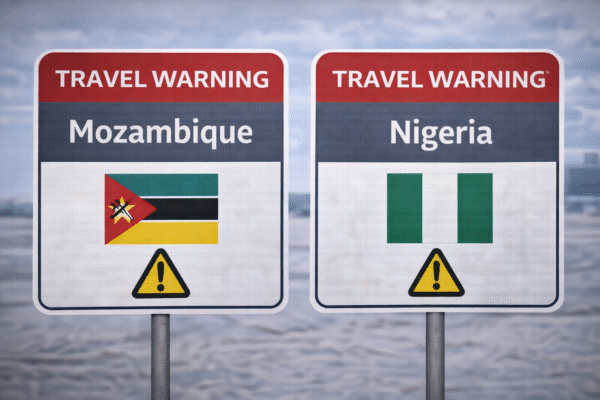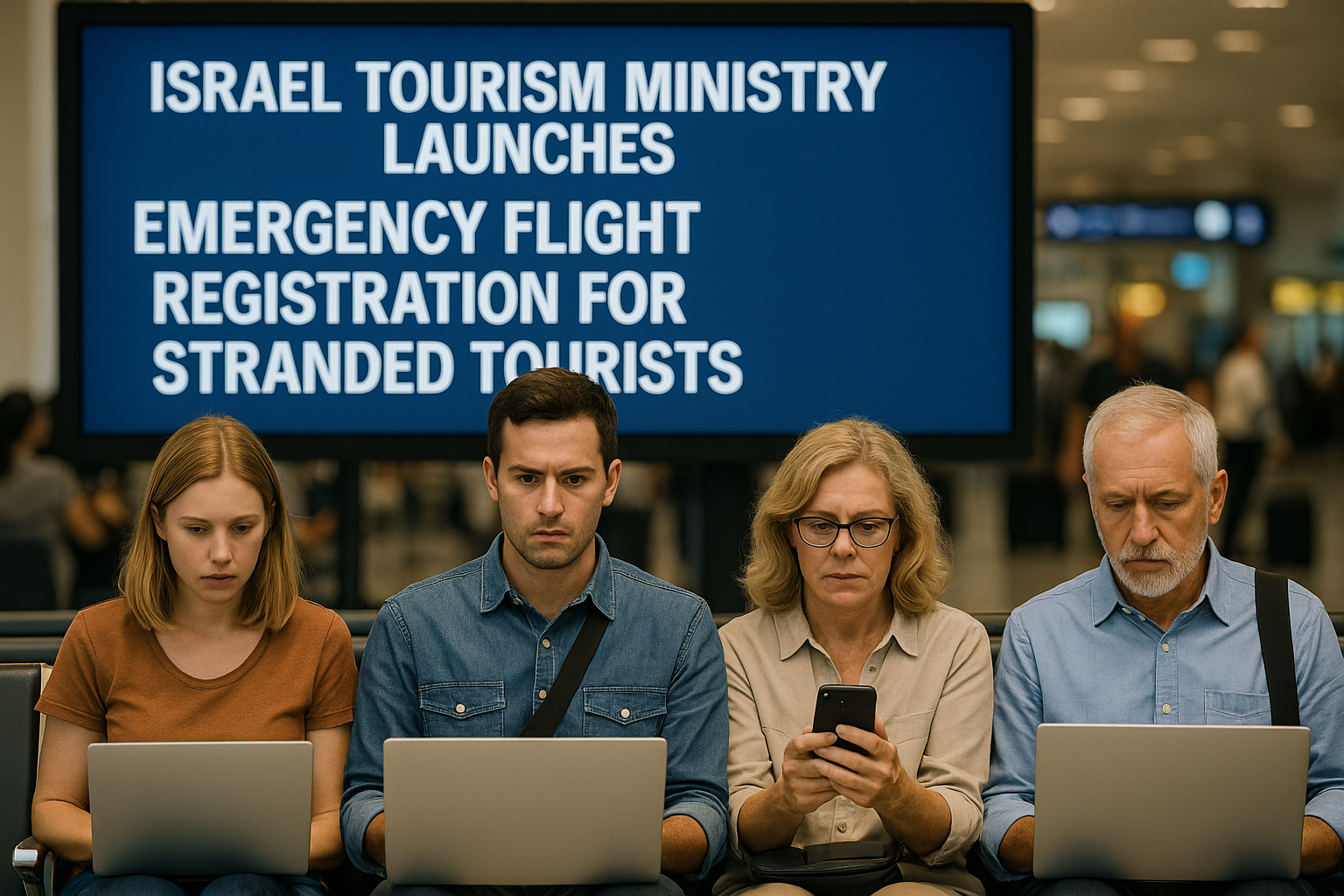In response to heightened tensions and growing concerns over traveler safety, the Israel Ministry of Tourism has announced the launch of a coordinated effort to assist an estimated 38,000 foreign tourists currently in the country. This includes the introduction of a digital registration system that will serve as a central channel to help stranded visitors secure departure on special coordinated flights, once available.
The announcement comes amid increased international focus on security developments in Israel, prompting many travelers to seek urgent return options. The Tourism Ministry has emphasized that the initiative aims to facilitate a safe and organized exit for tourists, working in close collaboration with Israel’s National Security Council (NSC), the Ministry of Transport, and global airline partners.
A Centralized Digital Platform for Tourist Evacuation
To streamline the process, the Tourism Ministry has launched a secure online registration form that tourists can complete to express their intent to depart the country. The form, being shared widely through hotels, travel agencies, tour guides, and tourism operators, collects essential information including:
- Full Name
- Passport Number
- Email Address
- Mobile Number
The collected data will be managed in compliance with Israel’s Privacy Protection Law, ensuring that all personal information is used strictly for the intended evacuation coordination purpose.
“The goal is to gather actionable data quickly and responsibly to help those who need to return home as soon as possible,” said a Ministry spokesperson. “We are working round the clock to provide logistical support to international travelers and their respective governments.”
Coordinated Government and Airline Support
Once enough travelers register through the digital platform, the Tourism Ministry will compile the data and forward it to the National Security Council and the Ministry of Transportation. These bodies will then work directly with airlines to organize special outbound flights, prioritizing safety and efficiency.
The government stressed that this does not replace embassy services. Tourists are still encouraged to stay in contact with their respective embassies or consulates, which can provide specific updates, assistance, and in some cases, repatriation support.
Ongoing Communication with the Tourism Sector
The Tourism Ministry is actively communicating with local stakeholders, including:
- Major hotel chains
- Tourism boards and associations
- Licensed tour operators
- Certified local tour guides
- Airport authorities and ground handling companies
This network has been instrumental in distributing the registration form, offering temporary accommodations, and relaying up-to-date guidance to tourists in their care.
Travelers are advised to remain in their current accommodations and monitor government updates while awaiting information on confirmed flight schedules. Those already booked on commercial flights are urged to check with their airlines directly regarding cancellations or rescheduling.
Situational Context: Why This Matters Now
This coordinated exit plan reflects Israel’s proactive stance in managing visitor welfare during uncertain times. The country, known for its robust tourism sector and year-round influx of pilgrims, adventure travelers, and cultural tourists, faces new challenges that demand agile, transparent solutions.
Tourism contributes significantly to Israel’s economy—generating over $8 billion in 2023—and the current effort showcases the government’s commitment to upholding the safety of international visitors, even during moments of instability.
As security updates continue to evolve, nations including the United States, United Kingdom, and Australia have issued travel advisories for their citizens in Israel. Many have called upon the Israeli government to ensure the orderly evacuation of tourists, particularly in areas with heightened tension.
Tourist Safety: What You Should Do
Foreign tourists still in Israel are advised to:
- Register immediately via the official digital form distributed by the Ministry of Tourism.
- Stay in regular contact with their national embassy or consulate in Israel.
- Follow local guidance and avoid high-risk areas as advised by security officials.
- Remain in registered accommodations or locations coordinated through certified travel agents.
- Avoid unofficial evacuation offers and stick to government-coordinated departure channels.
Airlines are expected to begin scheduling special repatriation flights once a critical number of registrants are collected and authorities finalize logistical arrangements.
Looking Ahead: Managing Tourism in a Crisis
The Tourism Ministry’s fast response illustrates how tourism infrastructure can pivot during crises—not just to protect the visitor experience, but also to safeguard lives and uphold international cooperation. While Israel continues to navigate internal and regional pressures, the country is maintaining its reputation for organized, responsive tourism management.
“This is not the first time we have faced complex situations,” said the Ministry spokesperson. “But the priority remains the same: the well-being of our guests. We are deeply committed to ensuring every tourist can return home safely and without panic.”



















